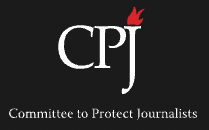January 13, 2022 — The Committee to Protect Journalism has issued a report on the Biden administration’s relationship with the press thus far, including the Justice Department’s handling of the Assange case. CPJ closes the report with recommendations for the Biden administration, including, “Stop the misuse of the Espionage Act to hinder press freedom: Drop the espionage charges against Julian Assange and cease efforts to extradite him to the U.S. Put into place legislation that would prevent the use of the Espionage Act as a means to halt news gathering activity.”
The report’s authors discussed these issues in a web event:
The following is an excerpt from the CPJ’s full report:
“The Biden administration is not just stepping away from what Trump was doing, but also what Obama was doing,” said Trevor Timm, executive director of the Freedom of the Press Foundation. “But, so far, it’s just words. It needs to be written into Justice Department guidelines. And Congress needs to take the words of Garland and write them into law.”
During the Obama administration, the Justice Department prosecuted an unprecedented 10 government employees and contractors for leaking classified information to the news media, including Justice investigations begun under President George W. Bush. Reporters’ phone logs and email records were secretly subpoenaed and seized in several of those cases. Under Donald Trump, Justice prosecuted eight more government employees and contractors for leaks to the press. In addition, it indicted Julian Assange, founder of WikiLeaks, with obtaining secret military and diplomatic documents and publishing them on the WikiLeaks website, making them accessible to news media around the world.
Under pressure from Trump, Justice also opened leak investigations that involved the secret seizures in 2020 of 2017 phone and email records of the Post, Times, and CNN reporters. The Biden-era Justice Department did not disclose the seizures until notifying the targeted reporters in May and June of 2021. While Garland took responsibility, Brown of the Reporters Committee said that the news media leaders and lawyers who met with Garland “made clear there should be accountability within DOJ” for the secrecy and delay in notifications.
Brown and other press freedom advocates also remain concerned about what the Biden Justice Department will do with the long-standing indictment of Assange under theВ 1917 Espionage Act, which was used by both the Obama and Trump administrations for many of their prosecutions of government employees and contractors for leaking classified information to the press.В
The Trump-era indictment charged Assange with conspiring with U.S. Army intelligence analyst Chelsea Manning to acquire and publish classified military and diplomatic information on WikiLeaks.
In February 2021, the Justice Department filed a brief appealing a British court ruling that had blocked extradition of Assange from the U.K. We are continuing to seek extradition, Justice spokesperson Marc Raimondi said at the time. On December 10, Britain’s High Court ruled that Assange could be extradited after assurances from the Biden administration that, if convicted, Assange would not be sent to the highest-security U.S. prison or put into solitary confinement. Assange’s lawyers said they would seek to make additional appeals on free speech and human rights grounds. A Justice Department spokesperson declined to comment further.
A coalition of press, civil liberties, and human rights groups have urged the Biden administration to drop its extradition efforts because they believe prosecution of Assange posesВ a grave danger to press freedom.В Many organizationsВ fearВ that successful prosecution of him could hamper investigative reportingВ around the worldВ by labeling as espionage the ways that reporters often work in seeking information from government sources.
“What is written in the indictment is a threat to journalists everywhere – obtaining and publishing classified information,” Timm of the Freedom of the Press Foundation told me. “The Assange prosecution would make reporting on national security a crime. It could criminalize investigative reporting. The Biden administration should drop the charges.”
Columbia Journalism School’s Coll agreed. “The Assange case should be dropped,” he told me. The indictment “is full of misunderstandings about how reporting works – very ordinary reporting.”
“It’s really troubling that in the indictment was a characterization of basic reporting as part of a conspiracy,” said University of Georgia’s Peters.
“How does the administration square new protections for journalists with the actions it takes on Assange?” asked Columbia Law School’s Professor Jameel Jaffer. “The answer will shed light on the scope of those protections.”

